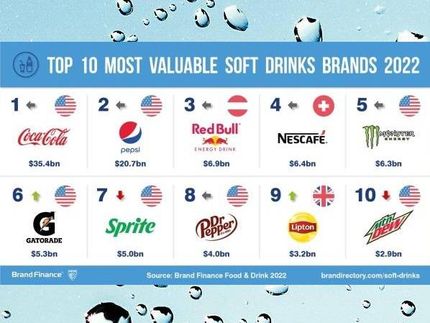A healthy life with chocolate, tea, coffee and zinc?
ageing and a low life expectancy are caused by oxidative stress, among other things. A research team led by Prof. Dr. Ivana Ivanović-Burmazović, Professor of Bioinorganic Chemistry at the Friedrich-Alexander-University Erlangen-Nuremberg (FAU), has now discovered, together with scientists from the USA, that zinc can activate an organic molecule and thus form protection against oxidative stress. The results were published in Nature Chemistry*.

BenjaminNelan/ Pixabay
Zinc is one of the trace elements we need to stay healthy. However, FAU scientists, in collaboration with Prof. Dr. Christian Goldsmith of Auburn University, Alabama, USA, have discovered that zinc together with a component from foods such as wine, coffee, tea and chocolate generates protection against the superoxide responsible for oxidative stress. This component is a hydroquinone group found in polyphenols, the plant compounds responsible for odour and taste. Zinc activates the hydroquinone groups and thus forms a natural protection against superoxide, an intermediate product of human cellular respiration that damages the body's own biomolecules, for example proteins or fats, as well as the genetic material. It is therefore associated with the aging process and a variety of diseases such as inflammation, cancer or neurodegenerative diseases.
Novel metal complex against superoxide
Hydroquinone alone is not able to break down superoxide. However, when zinc and hydroquinone combine, a metal complex is formed which mimics a superoxide dismutase enzyme (SOD). Such an enzyme protects the body from the decomposition processes caused by oxidation. It therefore has an antioxidant effect. In this way, the superoxide can be metabolized and damage to the organism can be prevented: Oxidative stress is avoided.
Zinc chocolate, zinc coffee and Co.
What is unique about these results is that the function of this enzyme is reproduced without the use of redox-active transition metals such as manganese, iron, copper or nickel. The metals could also have an antioxidant effect, but this effect is quickly reversed: if overdosed, they even promote oxidative stress. Zinc is far less toxic than the transition metals mentioned above, which makes new drugs or dietary supplements with fewer side effects possible. Also conceivable are foods that naturally contain hydroquinone and are zinc-rich to promote consumer health. "It is quite possible that at some point wine, coffee, tea or chocolate will be mixed with zinc. However, any alcohol content will cancel out the positive effects of this combination," stresses Ivana Ivanović-Burmazović.
Most read news
Organizations
Other news from the department science

Get the food & beverage industry in your inbox
By submitting this form you agree that LUMITOS AG will send you the newsletter(s) selected above by email. Your data will not be passed on to third parties. Your data will be stored and processed in accordance with our data protection regulations. LUMITOS may contact you by email for the purpose of advertising or market and opinion surveys. You can revoke your consent at any time without giving reasons to LUMITOS AG, Ernst-Augustin-Str. 2, 12489 Berlin, Germany or by e-mail at revoke@lumitos.com with effect for the future. In addition, each email contains a link to unsubscribe from the corresponding newsletter.



























































